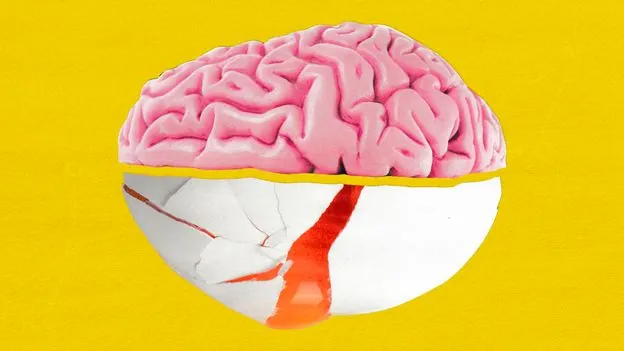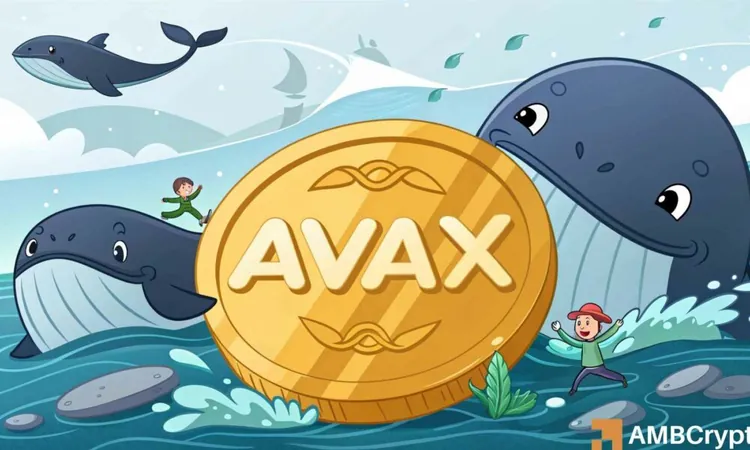
Unlocking the Power of Choline: The Brain Booster You Didn't Know You Needed
2025-04-09
Author: Michael
What is Choline?
Imagine a nutrient so powerful yet so overlooked that it could transform your brain health and overall well-being. Enter choline—a lesser-known organic compound that's essential for our nervous system's proper function.
Choline: A Brain Powerhouse
Recent studies reveal that choline is not just important; it’s vital. This nutrient is linked to enhanced cognitive performance and reduced anxiety, potentially protecting against disorders like ADHD and dyslexia. Research indicates that mothers who consume choline supplements during pregnancy may give birth to infants with markedly improved cognitive abilities.
Where Can You Find Choline?
Choline is an "essential" nutrient, meaning our bodies can't produce enough on their own. Similar to omega-3 fatty acids, we rely on dietary sources. It’s primarily found in animal foods—think beef, chicken, eggs, and fish. Plant sources include peanuts, kidney beans, and cruciferous vegetables like broccoli, but they can't compete with the choline content found in animal products.
The Crucial Role of Choline in Health
Every cell in your body depends on choline. It supports liver function and is necessary for the production of phospholipids that make up cell membranes. A lack of choline can lead to fatty liver and impaired cell growth—especially dangerous during fetal development.
Cognitive Benefits of Choline
Choline is key to producing acetylcholine, a neurotransmitter crucial for memory and learning. Studies show that higher choline intake can enhance memory in midlife and may even lower the risk of neurodegenerative diseases such as Alzheimer’s and Parkinson’s.
Choline and Mental Health
But that’s not all; choline could elevate your mood too. Research suggests a correlation between higher choline intake and lower anxiety and depression. Adding this nutrient to your diet might just be the mental health boost you need.
Impact on Bone Health
Interestingly, choline might also support bone health. Animal studies indicate it can help lower homocysteine levels, which are linked to heart disease and osteoporosis.
The First 1000 Days Matter
The developmental window from conception to a child’s second birthday is critical, with maternal nutrition playing a pivotal role. Studies link adequate choline intake during pregnancy to better cognitive outcomes in children, suggesting that deficiencies might even contribute to ADHD.
Are You Getting Enough Choline?
In Europe, recommended choline intake is set at 400mg for adults, while the US suggests 550mg for men and 425mg for women. An average egg contains about 150mg of choline. Alarmingly, many people, particularly in the U.S., fall short of these guidelines.
Can Vegans Get Enough?
Vegans might face challenges in choline intake, yet options include foods like tofu, peanut butter, and various legumes. Supplements are also widely available to help fill any gaps.
The Move to Recognize Choline's Importance
Health professionals are beginning to acknowledge choline’s significance, and while it may not yet be a household name, researchers are optimistic that its benefits will soon gain the recognition they deserve. Don’t let choline remain the unsung hero of brain health; consider adding it to your diet today!









 Brasil (PT)
Brasil (PT)
 Canada (EN)
Canada (EN)
 Chile (ES)
Chile (ES)
 Česko (CS)
Česko (CS)
 대한민국 (KO)
대한민국 (KO)
 España (ES)
España (ES)
 France (FR)
France (FR)
 Hong Kong (EN)
Hong Kong (EN)
 Italia (IT)
Italia (IT)
 日本 (JA)
日本 (JA)
 Magyarország (HU)
Magyarország (HU)
 Norge (NO)
Norge (NO)
 Polska (PL)
Polska (PL)
 Schweiz (DE)
Schweiz (DE)
 Singapore (EN)
Singapore (EN)
 Sverige (SV)
Sverige (SV)
 Suomi (FI)
Suomi (FI)
 Türkiye (TR)
Türkiye (TR)
 الإمارات العربية المتحدة (AR)
الإمارات العربية المتحدة (AR)